When you look at the technology boom of the last century, you could say that we’ve come a long way. We’ve eradicated diseases, made international travel and communication possible, and developed all sorts of gadgets to make our lives “easier.”
While all of this technology may seem like a good thing, it has the disastrous effect of making us wholly and utterly dependent on it.
Considering how unreliable all this technology is, our dependency on technology jeopardizes our survival.
At any moment, a solar flare from the sun could occur and cause an electromagnetic pulse (EMP) that would take down the electric grid and everything it powers.
Don’t think it will happen?
It has already happened several times throughout history! Back then, it didn’t have such an impact because people didn’t rely on electricity.
What would happen if an EMP occurred today?
Or maybe it won’t be a solar flare but a mega-drought that destroys the agricultural system and economy.
Then what will you eat?
Even in local disasters like hurricanes, your life could be put at risk because of something foolish, like not knowing how to navigate without your GPS.
These 23 survival skills below are examples of things we all used to know and practice daily. Remember, there was a time when people were self-reliant and didn’t depend on a chain of systems to get them through.
And also remember that, YES, it is possible to regain this self-reliance and take control of your own survival.
1. Gardening
In 1900, only 13% of the US population lived in urban areas. The rest mainly lived in rural areas, and many worked as farmers. Today, half of all people live in cities, and the figure is expected to grow.
In the cramped living conditions of cities, it is no wonder that people have stopped gardening. For them, food is something you get at the supermarket and not pick from the ground.
To urban dwellers, growing a garden might seem like a simple or even fun task, with the most challenging part being all those weeds to deal with. But gardening (at least in a way that will produce a substantial amount of food) is a task that requires vast amounts of knowledge.
Here are just some of the things you need to know to grow food effectively:
- Soil conditions
- Crop rotation patterns
- Pruning
- Composting
- Sun exposure charting
- Seed germination
- Planter building
- Pest control
- Tool care and maintenance
In a SHFT situation where food is a commodity you can’t get at the supermarket anymore, you will wish you knew these skills to produce your own food.
It’s better to start learning these skills now than when your life depends on it!
Read more about starting a survival garden.
2. Raising Animals
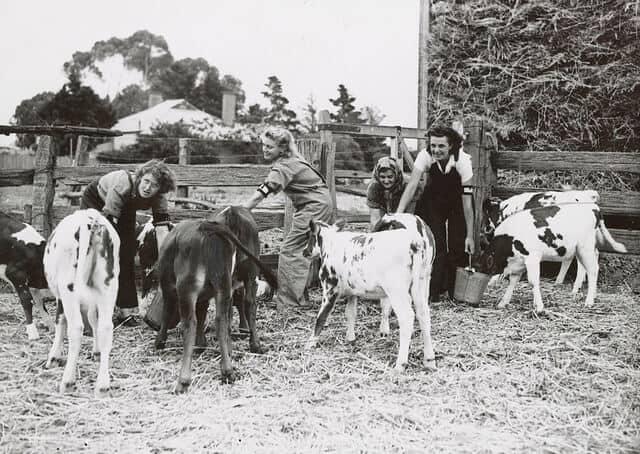
We’ve all heard stories about the farmer getting up at the rooster’s crow to milk the cows and feed the animals. Raising animals won’t just teach you responsibility (one trait our great grandparents had more of than us). When responsible for animals, you learn everything about caring for a living creature.
You will get good at working with wire for all those times you need to make repairs to the fence – a skill that will come in handy if you ever need to string barbed wire around the perimeter of your home for a defense system.
You will get good at diagnosing and treating animal diseases – a valuable skill for when no doctors or medicines are available.
You will get good at building coops and pens- a skill you can apply to building a survival shelter in Bug Out situations.
3. Hunting
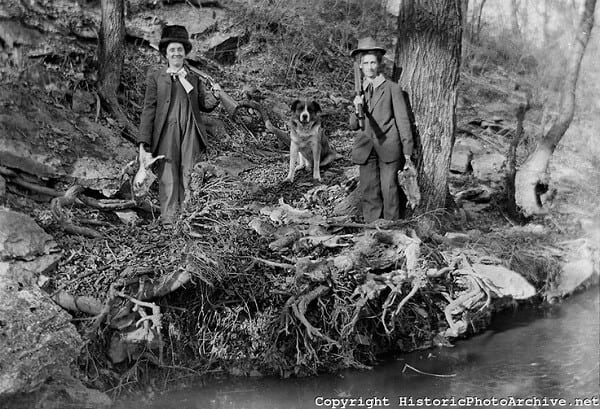
In 2013, an Austin-based startup created an “auto-aim” rifle that automatically locks onto the target and tracks it. Whether it is a goose flying in the sky or a deer bounding away, you are guaranteed to get a hit. This is yet another example of how technology is destroying our self-reliance.
Hunting used to be a common pastime, and many schools even had hunting clubs and the students would bring their rifles to school and keep them in their lockers (good luck getting that started again in our schools!). Yes, plenty of people still hunt, but the numbers have dwindled.
Even the people who still hunt today don’t do it like our great grandparents did. Hunting usually means setting some bait, climbing into a watch tower, and waiting until a deer comes around to take your shot.
By contrast, our great grandparents hunted by staking out animals – a skill that required them to be very familiar with animal habits and tracks. They could walk quietly and undetected through the woods and patiently wait for the right opportunity to get a shot at a large prize.
Along with hunting with rifles, our great grandparents also knew how to set up snares to catch smaller game.
In a SHFT situation, these snares will probably be most beneficial for survival.
Unlike rifles, snares don’t require any ammo, they don’t make a loud noise that will give away your location and are more likely to get a catch since small animals are found in greater abundance.
4. Preparing Meals from Scratch
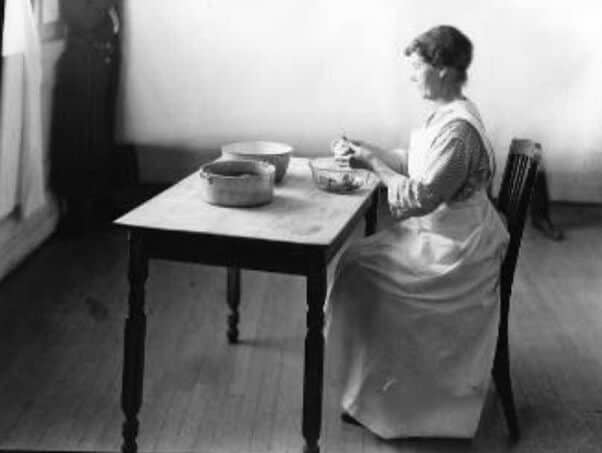
FEMA recommends that everyone keep a supply of non-perishable foods like dry beans and flour in their homes in case of a disaster. The irony is that many people have absolutely no clue on how to prepare these dry foods.
As for the 50 lbs of flour that some people have stockpiled, I hope they like eating raw flour – because it takes some knowledge to turn flour into bread!
Processed foods comprise approximately 70% of the American diet, and only a small percentage of Americans cook at home. When they aren’t eating fast food or takeout, they eat frozen dinners and meals from boxes.
Our great grandparents didn’t have 45 different types of frozen lasagna to choose from. Heck, they didn’t even have supermarkets, never mind freezer sections!
They made food from scratch out of necessity, and it was nutritious and wholesome without needing any fancy ingredients.
5. Preserving Food
Thanks to our complex food storage and distribution systems, we can have foods like bananas and cucumber year round – never mind that the bananas probably grew over 1,000 miles from where you live or that cucumbers are only in season in warm months.
Our grandparents and great-grandparents didn’t have this. Instead, they would take advantage of the food seasons. They’d produce a surplus and preserve it for times of scarcity.
Thanks to the food revolution, more young people have gardens and are doing things like home canning. However, we could step this up a notch and start teaching people food preservation skills like:
- Lacto-fermentation
- Pickling
- Smoking
- Dry salting
- Curing
- Drying
- Cellaring
6. Not Wasting Food
When you have to grow, forage, and hunt for your food, you don’t take it for granted. This isn’t something that can be said of today’s generation!
Consider that the average American family throws away 1/4 of the food they buy, adding up to approximately $1,365 to $2,275 annually. Our great grandparents would be horrified!
People are so willing to toss food into the trash because they assume they can always go to the supermarket and get more.
Our great grandparents and grandparents lived through the Great Depression and World Wars I and II. They knew crises could strike anytime and leave you hungry and deprived.
So, when you have a surplus, you put some aside for those rainy days – something we should all be doing by investing in a long-term food storage supply.
7. Natural First Aid
Did you know that you can stop bleeding with cayenne pepper or that thyme is a natural cough remedy?
You might not, but your great grandparents certainly did.
Before the era of superhighways and cheap cars, people didn’t have easy access to doctors. They did things themselves. When SHFT and you’ve got a case of bad diarrhea from drinking dirty water, you will wish you could call up your grandparents and ask for advice.
Recommended: Natural Remedies For Diarrhea
8. How to Navigate (without a GPS)
If you have kids, then you probably know about the children’s show Dora the Explorer. When Dora goes on adventures, she calls on her friend Map to get instructions. Except that Dora doesn’t actually read Map. She just tells Map where she wants to go, and Map tells her how to get there.
The first time I watched that show with my daughter, I thought it was ridiculous: You can’t say the name of where you want to go and expect Map to know everything! Then I realized that Map is exactly the same as the GPS systems, which virtually everyone today relies on.
Once the grid goes down and everyone’s GPS is fried, you will have many people wandering around lost in their own cities.
To increase your chances of survival in an emergency, you can take these steps to learn more map reading skills and familiarize yourself with your area:
- Hang a map of your local area in your home to study its layout.
- Look at your map from a tactical standpoint, devise exit strategies, and pinpoint safe zones.
- Determine where you will go in a disaster where you must evacuate; chart multiple routes from your home to this location.
- Go for a hike in the woods with a map and a compass.
- Sign up for your local orienteering group.
- Drive around your neighborhood without a map or GPS to familiarize yourself with it.
9. Home Maintenance
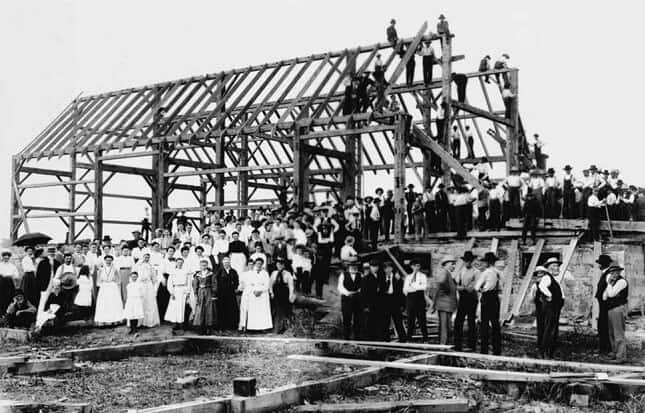
How many people today know how to do even the most basic home maintenance or repairs, like putting up shelves or fixing a leaking pipe?
In a serious disaster situation, these skills will go a long way to your survival – put those basic carpentry skills to use by building a shelter. However, there doesn’t have to be a major SHTF disaster to get use out of these skills.
In a local disaster such as a hurricane (which is happening with higher frequency), it is common to have broken windows, roofs, and doors. You must be able to fix these so your home remains safe and livable until you can clean up or evacuate.
At the bare minimum, everyone should know the following three things. After you’ve got these down, you can gradually build up your skills by fixing home maintenance issues as they arise.
- How to shut off the water main: Make sure you and all your family know where it is located and how to shut it off. If a water supply pipe gets damaged during a disaster situation, you don’t want to confound the disaster by having water flooding into your house.
- How to shut off the gas main: This is especially important for earthquakes and other natural disasters, as gas supply pipes are often damaged. The leaking gas can kill you!
- How to board up a window: Before a hurricane, you should always board up windows to prevent glass from breaking and flying everywhere. You’ll also need to board up windows before evacuating to protect your home from looters and fix any broken windows for protection against the elements.
10. How to Reuse Everything
In one memoir about growing up in the Great Depression, a woman tells about how her family salvaged socks with holes. The holes usually appeared in the toes or heel. The hole would be sewn up, causing the sock to be slightly smaller – so the sock would get passed down to the next child in line.
When that child got a hole in the socks, they’d be sewn up again and passed down. So, it would continue until the socks were too small to be used. No, the socks still didn’t get thrown away. At that point, they’d be used for cleaning and scrubbing floors.
You learn to use everything you can find when you don’t have much. Luckily, this life skill is becoming popular again. You can see examples of people making all sorts of furniture, decor, and kids’ crafts out of old plastic bottles, salvaged wood (see DIY picket fence salvage ideas), and so forth.
Take a look in your trash can. What items are in there? Which of these items could be used in a survival situation?
11. Memorizing Phone Numbers
This might seem like a joke, but think about it for a minute. If a disaster occurred and your mobile phone was damaged, could you call your loved ones?
Long before cell phones allowed us to make a call with a single tap, people memorized the phone numbers of their family, friends, and doctors.
If you don’t think you can memorize all your essential numbers, then at least WRITE THEM DOWN ON PAPER. Do not only store your phone numbers on your computer or in the cloud.
Yes, the digital method of storing phone numbers might be acceptable for situations like if your cell phone is stolen. But what if the grid goes down, you can’t get online, and your cell is dead?
Make a paper list of essential contents with their phone numbers and addresses. Put this list in a waterproof sleeve and put it with all of your other important survival documents.
12. Cultivating Community
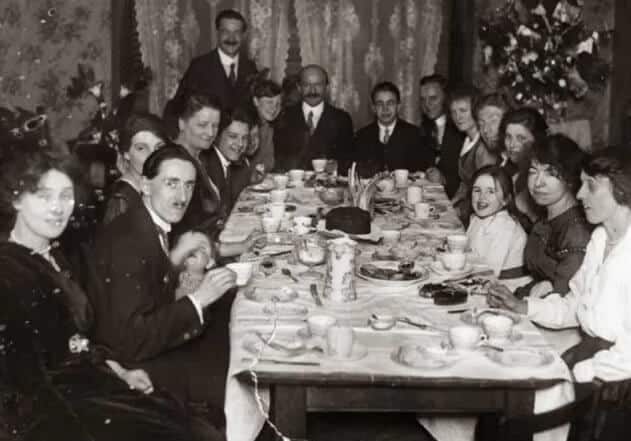
It wasn’t that long ago that neighbors knew each other and could rely on each other for things like the proverbial cup of sugar.
They did things like host dinner parties, block parties, and gossip with each other. Today, most people don’t even know their neighbors’ names, much less have any bond with them. The most socializing we do is through Facebook.
Being friendly with your neighbors might not seem like a survival skill, but it might be the one that ultimately saves your life. Humans are social creatures, and our main strength – and the reason we’ve survived despite being weaker and slower than predators – is strength in numbers.
When SHTF, wouldn’t you rather be able to call on your neighbors to help you defend the perimeter and share your skills, or would you rather have them come banging on your door to steal your supplies?
13. Sewing
Our grandparents could have easily gone to the store and purchased clothes. Or, if they lived far from a city, they could have hired a dressmaker to make their clothes. However, sewing (and other skills like crocheting, knitting, and darning) were more than just skills women were expected to know.
As Gutenberg history of sewing says,
“Sewing was for many a routine component of a household economy, usually (but not always) cheaper than buying items ready-made…Sewing represented the home, women’s conventional role of caring for her family, and was associated with concepts of thrift, discipline, domestic production, even sexual morality. “
14. Hand Washing Clothes
In the 1950s, only 33% of households had a washing machine. Today, nearly all homes have one. As for the homes without them? They likely go to a laundromat.
How many people can wash their clothes efficiently without a washing machine? Imagine a situation where the grid has gone down, the washing machines don’t work, and there isn’t any running water!
A good solution? How about this simple DIY bucket washing machine.
15. Bartering
In history, farmers didn’t have much money but would have goods. They used these to barter with members of the community for things they needed. When the Great Depression struck, many people survived by bartering.
Bartering is still very common in many parts of the world.
Speaking personally, I can say how uncomfortable I felt the first time I had to barter at a market in East Asia. It got easier (and the amounts I paid became much lower) – but it took time to develop this skill. Most of us would struggle if the world economy crashed and we needed to rely on bartering again.
16. Marksmanship
We still respect and honor Marksmanship through events like the Olympics and ISSF. However, the percentage of people who know and utilize this skill is declining. Heck, even “trained” police officers are lacking marksmanship skills!
17. Making their Own Cleaning Products
You’ve probably heard that our great-grandparents used to make soap out of animal fat, but do you have any clue on how to actually do it? Check out this article on how to make wood ash soap.
If there were a major economic collapse or grid failure, most of us would be incredibly dirty, and we’d all face a significant hygiene problem!
18. Foraging for Food
When we picture our great-grandparents’ and grandparents’ lives on the farm, we picture them gardening and tending the animals – but we tend to omit the foraging part.
Yet, our grandparents used to take long walks into wild fields and forests to gather mushrooms, tubers, leafy greens, berries, and many other wild edibles.
Foraging is a long part of our history, and it was how our grandparents supplemented their food and got greater diversity. Luckily, foraging is making a comeback with youth, but the knowledge is mostly lost and relegated to a few “foolproof” species of edible plants.
Read this If you want to learn foraging, or how about starting with these edible plants found near your home.
19. Warming a Home
In our great-grandparents’ time, wood stoves were the most common way of warming a home during the cold months. They’d also employ various tricks, like using “bed warmers” filled with coals.
In the 1900s, “instant heating” methods became more common. However, these are anything but “instant” by our standards. You would have to load coal into a furnace, using guesswork to determine how much coal to use.
20. Butchering
Because hunting and raising animals was an essential part of life, you can bet that they also knew how to butcher it. My grandparents even made sure to use every part of the animal, making “head cheese” from parts that people today say are too gross to eat.
The number of hunters in America is declining (and the rest of the modern world). As we lose hunters, we also lose the skill of butchering animals.
21. Cloth Diapering
My wife and I used cloth diapers for our daughter when she was born. We were surprised at how much backlash we got for this.
“Isn’t it disgusting!”
“You put those dirty poop diapers in the washing machine where your normal clothes go!?!?”
I tried to explain that disposable diapers are not that much different: You just put the cloth diaper into a bin instead of the trash. And we have a washing machine – it isn’t even like we are washing the diapers by hand!
In this sense, cloth diapering isn’t just a lost survival skill. It is a lost mentality.
22. Entertaining Themselves
Our grandparents didn’t have TV growing up, not to mention eBooks, the internet, YouTube, video games, and the dozens of other forms of instant entertainment that we have today.
They probably did have a radio, but your great-grandparents probably didn’t. The first commercial radio station didn’t broadcast until 1920. Radio became popular quickly, but by 1930, still less than half of American households had a radio.
Without instant entertainment, our grandparents had to entertain themselves.
They read the Bible.
They told stories.
They made toys (my favorite example is a balloon made from a pig bladder).
These might not seem like survival skills, but entertainment is important for stress relief so you can better cope with everyday survival.
23. Making Do
The average American goes to the grocery store 1.6 times per week. That doesn’t include the number of trips to other stores like hardware stores. Nor does the figure include all of the online shopping we do for random items.
With goods so readily accessible today, our generation has never learned to “make do” with what we have. Instead, we just buy whatever is missing.
This easy access to goods has killed our creativity and problem-solving skills.
It is a bit scary to imagine what would happen to this generation if we suddenly had to learn to make do with what was available!
How do you feel about this? Are we losing our self-reliance?



Thank you. I greatly enjoyed reading this, and the comments that proceeded it. Sometimes the best way forward is to take a few steps back. Nothing in nature is ever just black or white. As people; our views often can be. It would be lovely to re-educate ourselves in ‘old-world’ ways that compliment the systems we have to live by in this life. Lots of food for thought. Thank you.
Being a vegetarian, I can happily skip number 3 and 20!
Except for some peoples like the Inuit who relied mostly on hunting for survival, folks used to eat a lot less meat before. (Btw, there are astonishing finds about the Roman gladiators who lived on beans and barley… So if you think going vegetarian will make you weak: think again!)
Also, it makes it easier to go without a fridge and, in a pinch, there’s less risk of making yourself dreadfully sick because you ate meat that was just too far gone or had parasites in it. So: go veg! 😉
With every passing day, I become even more convinced that I was born in the wrong century. So, people probably think I am crazy, but I decided to bring the 19th century into my little corner of the world. In the form of petticoats and corsets, learning canning and other preservation techniques, natural medicine, etc. I don’t have the ability to live off grid, or even on a large farm, but I am trying to cram as much “old” knowledge into my head as quickly as possible, lol.
I’m definitely glad I was born in this century (ever been to a medical history museum and seen the instruments they used to use!?!) but modern technology doesn’t mean we need to abandon the old knowledge. 🙂
i took a real look at each category and graded myself with a 1-5 for each based on the perceived skills either my wife or i have. the final total was 83/115 or 74.8%. That’s a failing score if i ever saw one in school.
But then there is Bartering, and Community, places that multiply ones ability to accomplish any task. One simply needs to find someone with the skill you need and exchange it for one they don’t have.
I would say that 75% is actually pretty decent. The idea of 100% self-sufficiency is a complete myth — it takes a village and our great grandparents certainly knew that!
Hi Noel I am only 37 years old and I too frown upon how useless technology has made us. I lost my charger to my phone once and wanted to call one of my friends, but could I! The answer is no. When I was younger I had hundreds of family, friends, and businesses numbers stored in my head. I use to hand scrub my floors now I have steam mops. My 2 daughters won’t play outside. It really is ludicrous. I have been wanting to get back to the old ways for a long time and now after reading this I most certainly will. Thank you.
I am 89 and counting…I was raised in the Twin Bridges Montana Orphanage in 1936-1945. It was a dairy farm. We were trained in all aspects of work, Commercial and Mechanics, so when we were discharged we could find work because we had experience. (Child Labor at the time was Politically Correct.) -If you want to see that Orphanage, open Utube and click on the Ghost Ventures Orphanage episode created in Twin Bridges. The TV show will be repeated on the Travel Channel April 21,2018…for the 6th time.
Hi Noel, fascinating stuff, thanks for the comment.
Thank you so much for the valuable information! While reading them, I realize what I need to learn for emergency cases and what I need to teach my children! You definitively changed someone’s perspective and life with you valuable blog. It’s like a grandpa teaching you all the stuff.
Excellent information. Thanks
Do you have any paper books for sale? I don’t want ebooks.
Thank you….Susan
We have a post looking at survival books (most available from Amazon) – https://www.primalsurvivor.net/prepping-survival-books/
I would love to have copy of that.